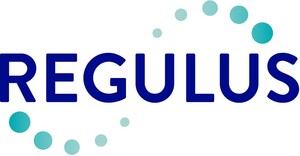SAN DIEGO, Nov. 2, 2022 /PRNewswire/ -- Regulus Therapeutics Inc. (Nasdaq: RGLS), a biopharmaceutical company focused on the discovery and development of innovative medicines targeting microRNAs (the "Company" or "Regulus"), today announced the dosing of the first patient in the Phase 1b MAD study of RGSL8429 for the treatment of Autosomal Dominant Polycystic Kidney Disease (ADPKD).
"Dosing of the first patient in the MAD clinical trial of RGLS8429 marks yet another important achievement in our ADPKD program," said Jay Hagan, President and Chief Executive Officer of Regulus Therapeutics. "This study is an important step as we advance RGLS8429 in ADPKD and look forward to its continued development as a potential targeted treatment option for patients with ADPKD."
The Phase 1b MAD study is a double-blind, placebo-controlled trial to assess safety, tolerability, and pharmacokinetics of RGLS8429 in adult patients with ADPKD. The study will evaluate the safety and efficacy of RGLS8429 treatment across three different dose levels including measuring changes in polycystins, cystic kidney volume (htTKV), and overall kidney function. The first cohort will be dosed at 1 mg/kg of RGLS8429 or placebo every other week for three months. Topline data from the first cohort of patients is expected in mid-2023.
More information about the MAD clinical trial is available at clinicaltrials.gov (NCT05521191).
About ADPKD
Autosomal Dominant Polycystic Kidney Disease (ADPKD), caused by mutations in the PKD1 or PKD2 genes, is among the most common human monogenic disorders and a leading cause of end-stage renal disease. The disease is characterized by the development of multiple fluid filled cysts primarily in the kidneys, and to a lesser extent in the liver and other organs. Excessive kidney cyst cell proliferation, a central pathological feature, ultimately leads to end-stage renal disease in approximately 50% of ADPKD patients by age 60. Approximately 160,000 individuals are diagnosed with the disease in the United States alone, with an estimated global prevalence of 4 to 7 million.
About RGLS8429
RGLS8429 is a novel, next generation oligonucleotide for the treatment of ADPKD designed to inhibit miR-17 and to preferentially target the kidney. Administration of RGLS8429 has shown robust data in preclinical models, where clear improvements in kidney function, size, and other measures of disease severity have been demonstrated along with a superior pharmacologic profile in preclinical studies compared to Regulus' first-generation compound. Regulus announced completion of the Phase 1 SAD study in September 2022. The Phase 1 SAD study demonstrated that RGLS8429 has a favorable safety and PK profile. RGLS8429 was well-tolerated with no serious adverse events reported. Preliminary results suggest plasma exposure is dose proportional across the four doses evaluated and are similar to the PK data from the first-generation compound, RGLS4326.
About Regulus
Regulus Therapeutics Inc. (Nasdaq: RGLS) is a biopharmaceutical company focused on the discovery and development of innovative medicines targeting microRNAs. Regulus has leveraged its oligonucleotide drug discovery and development expertise to develop a pipeline complemented by a rich intellectual property estate in the microRNA field. Regulus maintains its corporate headquarters in San Diego, CA.
Forward-Looking Statements
Statements contained in this presentation regarding matters that are not historical facts are "forward-looking statements" within the meaning of the Private Securities Litigation Reform Act of 1995, including statements associated with the Company's clinical trials involving RGLS8429 for the treatment of autosomal dominant polycystic kidney disease, including the planned initiation of clinical trials involving ADPKD patients, timing of data and potential outcome of such clinical studies. Because such statements are subject to risks and uncertainties, actual results may differ materially from those expressed or implied by such forward-looking statements. Words such as "believes," "anticipates," "plans," "expects," "intends," "will," "goal," "potential" and similar expressions are intended to identify forward-looking statements. These forward-looking statements are based upon Regulus' current expectations and involve assumptions that may never materialize or may prove to be incorrect. Actual results and the timing of events could differ materially from those anticipated in such forward-looking statements as a result of various risks and uncertainties, which include, without limitation, risks associated with the process of discovering, developing and commercializing drugs that are safe and effective for use as human therapeutics and in the endeavor of building a business around such drugs, and the risk additional toxicology data may be negative. In addition, while Regulus expects the COVID-19 pandemic to adversely affect its business operations and financial results, the extent of the impact on Regulus' ability to achieve its preclinical and clinical development objectives and the value of and market for its common stock, will depend on future developments that are highly uncertain and cannot be predicted with confidence at this time, such as the ultimate duration of the pandemic, travel restrictions, quarantines, social distancing and business closure requirements in the U.S. and in other countries, and the effectiveness of actions taken globally to contain and treat the disease. These and other risks are described in additional detail in Regulus' filings with the Securities and Exchange Commission, including under the "Risk Factors" heading of Regulus most recently quarterly report on Form 10-Q. All forward-looking statements contained in this press release speak only as of the date on which they were made. Regulus undertakes no obligation to update such statements to reflect events that occur or circumstances that exist after the date on which they were made.
SOURCE Regulus Therapeutics Inc.

WANT YOUR COMPANY'S NEWS FEATURED ON PRNEWSWIRE.COM?
Newsrooms &
Influencers
Digital Media
Outlets
Journalists
Opted In





Share this article